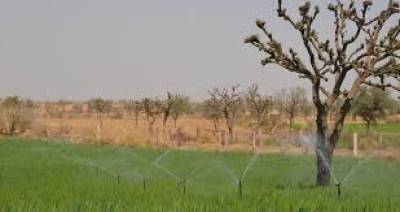NEW DELHI, 30 June 2025: India has joined hands with the United Nations Food and Agriculture Organization (FAO) to launch a pilot programme aimed at transforming water management and irrigation practices in four states. The initiative seeks to address the rising water stress threatening India’s agricultural sector, which consumes nearly 80 per cent of the country’s freshwater resources.
The pilot will deploy closed, pressurised irrigation pipe systems that dramatically reduce evaporation losses and enable efficient water delivery to far-flung farms. Unlike traditional open canal networks, these modern systems promise to extend water access while cutting waste, even over long distances.
Beyond infrastructure, the pilot integrates advanced technology. Optical fibre cables will be laid alongside pipelines to transmit real-time data on water consumption while providing Wi-Fi connectivity to rural areas. This smart system will work in tandem with soil moisture sensors and mobile-based irrigation controls, allowing farmers to adopt precision irrigation techniques.
Farmers will receive training to manage these systems, ensuring local ownership and improved transparency. Water User Associations (WUAs) will play a crucial role in monitoring water use and managing distribution at the village level. These community-based bodies will be scaled up to block and district networks, strengthening grassroots decision-making and accountability.
The strategy, called “Indian Irrigation Towards 2030,” will unfold in two phases. The first phase involves studies, pilot demonstrations, and capacity building through FAO’s Technical Cooperation Programme. Depending on its success, a broader rollout will follow under a Unilateral Trust Fund partnership with the Ministry of Jal Shakti.
The aim is to make India’s irrigation systems more climate-resilient, equitable, and efficient in the long term. The project is expected to empower farmers with data-driven tools and encourage smarter water use in the face of climate change and depleting groundwater reserves.
FAO officials said the pilot could serve as a blueprint for scaling sustainable water management solutions across India. By combining advanced irrigation systems, digital technologies, and farmer-led governance, the programme hopes to secure rural livelihoods while safeguarding India’s precious water resources.
Image credit: fao.org




















